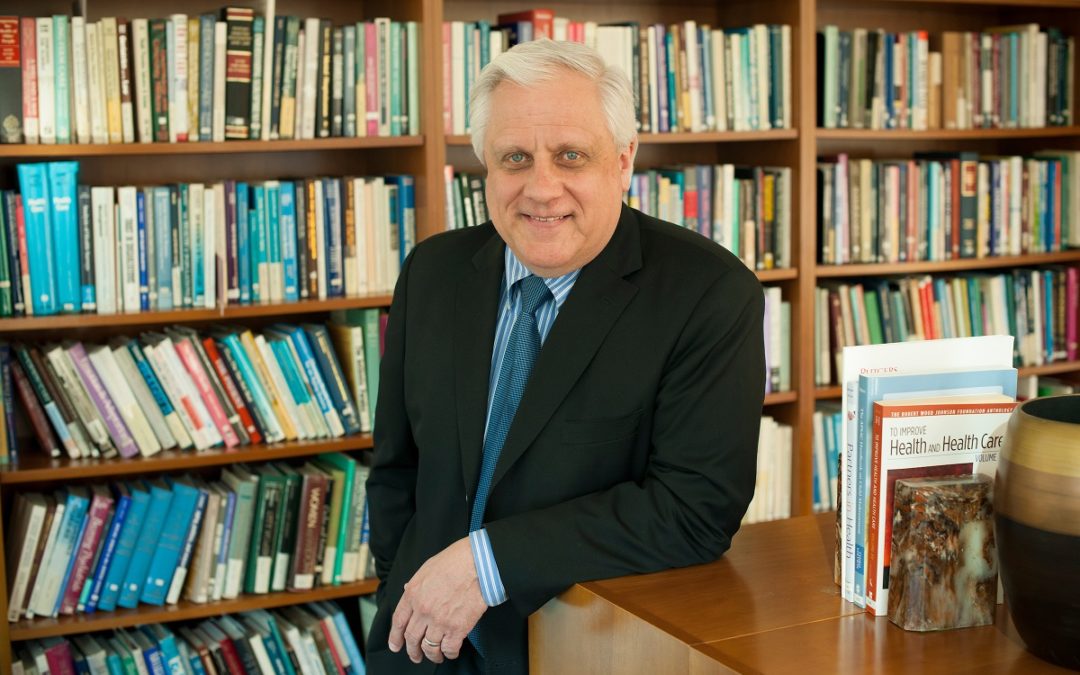Hold a globe in your hand and place your finger anywhere on its surface. You have touched a place where people are affected by global health issues.
“Global health issues aren’t bounded by borders,” says Richard G. Marlink, MD, professor of medicine at Robert Wood Johnson Medical School, inaugural Henry Rutgers Professor of Global Health, and director, Rutgers Global Health Institute. “The challenges in global health are community public health threats that may impact us all.” These issues stem from a wide range of causes, often human-related, including climate change, infectious diseases, or an exported Western Hemisphere lifestyle that has increased the incidence of diabetes, cancer, and heart disease.
In 2016, Rutgers, The State University of New Jersey, recruited Dr. Marlink to lead the new Rutgers Global Health Institute, a universitywide effort, based at Rutgers Biomedical and Health Sciences. In addition to holding a Henry Rutgers professorship, Dr. Marlink is faculty at Robert Wood Johnson Medical School and a member of the Rutgers Cancer Institute of New Jersey.
Solutions to global health problems depend on bringing to bear overlapping sciences including statistics, demography, and epidemiology. “The diversity of schools at Rutgers promises diverse and effective solutions to global health problems,” says Dr. Marlink, citing some examples. The Rutgers School of Business could be involved in solving supply chain problems to expedite medication and materials to remote places, he says. And the School of Engineering could develop further biomedical engineering solutions for poor populations.
Download the pdf to read the full story in Robert Wood Johnson Medicine magazine.

